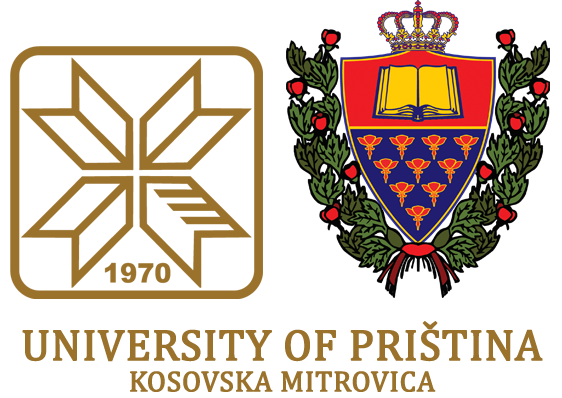The University of Pristina was founded on 18 November 1969. At that point, according to legal requirements, the University established courses in the Serbian as well as the Albanian language.
When founded, the University of Pristina consisted of 14 faculties, twelve of which were located in Pristina. Those were the following: Faculty of Economics, Faculty of Medical Sciences, Faculty of Laws, Faculty of Natural Sciences and Mathematics, Faculty of Agriculture, Faculty of Philosophy, Faculty of Philology, Faculty of Sport and Physical Education, Faculty of Arts, Faculty of Civil-Engineering and Architecture, Faculty of Electronic and Electrical Engineering, Faculty of Mechanical Engineering. The Faculty of Mining and Metallurgical Engineering was located in Kosovska Mitrovica, and the Faculty of Pedagogy was located in Prizren. Due to the continuous expansion of its faculties, the forming of a wide range of courses and degrees, and the establishment of fully adequate conditions for undergraduate, graduate, and doctoral students alike, the University of Pristina was able to develop into one of the most prestigious universities in Serbia.
This was not always discernible. During the war in 1999, around 1,500 professors, administrators and other employees of the University in Pristina, together with 16,000 students (whose lessons were in Serbian), were expatriated and evicted from the University. Their property was usurped and their return has never been made possible. After the exile from Pristina, the University and a few other faculties have been temporarily relocated. As a result of a governmental resolution of the Republic of Serbia at the end of 2001, the university resettled in Kosovska Mitrovica, which has been its temporary settlement since then. Gradually, all faculties have returned to Kosovo and Metohija. In spite of the past difficulties and turbulences, our university has consolidated and succeeds in doing its best: providing young people with high quality education and a proper perspective for the future.
Today the University can be correlated, and even equated with other European universities.
The University has the status of a state university, as a comprehensive/multidisciplinary university, and comprises ten Faculties. The Bologna agenda has been adopted by the University and a three-cycle system of studies was introduced in 2006. Almost all scientific disciplines (with the exception of the political sciences) are covered at the University, as well as three levels of studies (BA, MA and PhD), which are covered at 10 different faculties and 101 study programmes:
- Faculty of Economics
- Faculty of Medicine
- Faculty of Agriculture
- Faculty of Law
- Faculty of Natural Sciences and Mathematics
- Teacher Education Faculty
- Faculty of Sports and Physical Education
- Faculty of Technical Sciences
- Faculty of Arts
- Faculty of Philosophy
Currently, there are around 9.000 students, 721 academic staff, and 336 non-academic staff.

